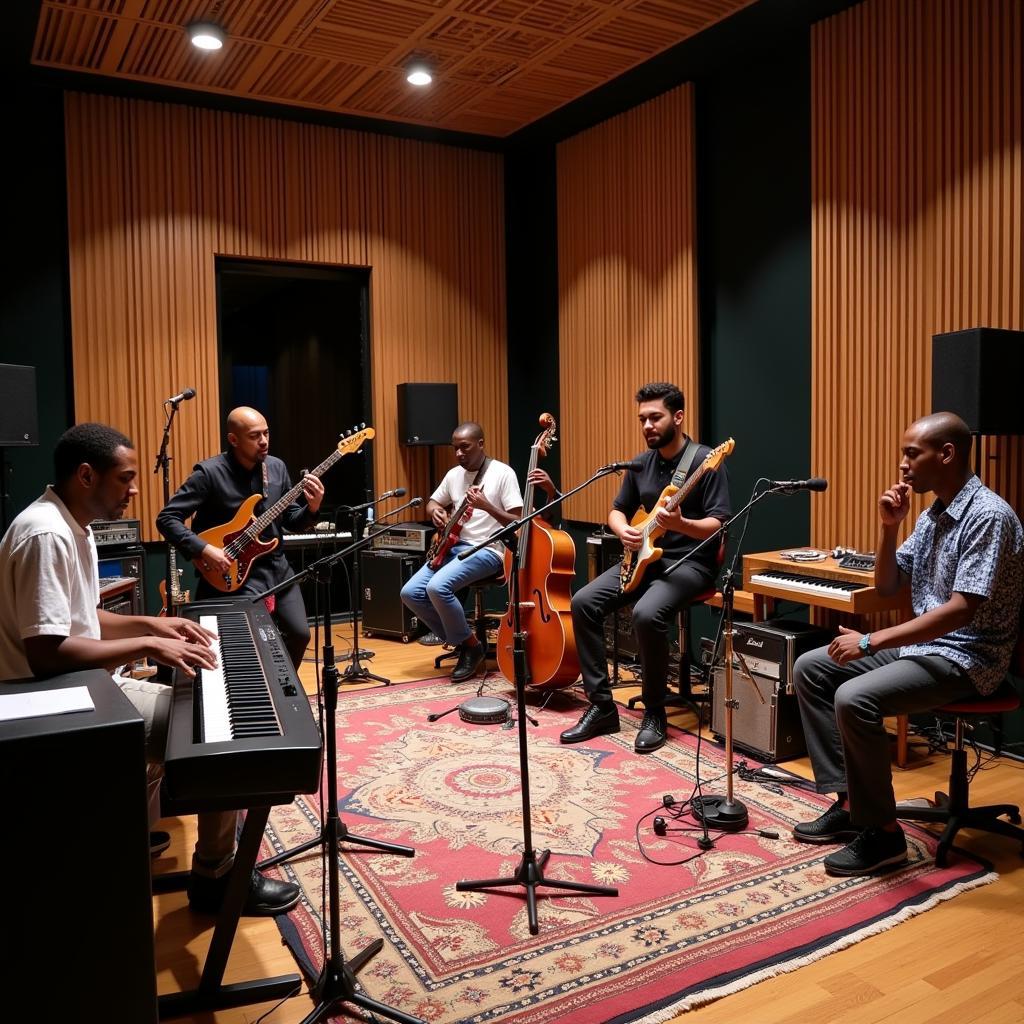Exploring African Forest Peoples’ Unique Sexual Practices: A Cultural Dive
The African continent is renowned for its diverse cultures, each with rich traditions and customs. Today, we venture into the fascinating realm of African forest peoples’ sexual practices, a subject often shrouded in mystery and intrigue. We’ll delve into their unique beliefs, rituals, and perspectives on sexuality, offering insights into a world where nature and human life are intertwined.
Understanding the Significance of Sex in Forest Cultures
Across Africa, forest communities hold a deep reverence for nature, believing that the spirit world and the physical world are inextricably connected. Their sexual practices often reflect this intricate relationship, integrating them with their spiritual beliefs, social structures, and daily life.
“Sex is not just a physical act in our culture, it’s a sacred act that connects us to the earth and our ancestors,” shares Dr. Abena Mensah, an anthropologist specializing in African forest cultures.
Unveiling the Mystical Rituals and Practices
Forest peoples often associate sexuality with fertility, abundance, and the life-giving forces of nature. Their rituals and practices encompass a wide array of activities:
- The Ritual of the Sacred Grove: Many communities have sacred groves where they perform specific rituals related to fertility and sexuality. These groves often house ancestral spirits and are seen as potent sources of power.
- Initiation Ceremonies: Boys and girls often undergo elaborate initiation ceremonies that mark their transition into adulthood. These ceremonies often involve teachings on sexual practices, responsible procreation, and the interconnectedness of sex with the natural world.
- Traditional Medicines and Fertility Practices: Some communities use plant-based remedies and traditional medicine to enhance fertility and address sexual health issues. These practices are passed down through generations and form a crucial part of their healthcare system.
Embracing the Diversity of African Forest Sexual Practices
It’s crucial to remember that each community has its unique set of beliefs and practices. Generalizations are unhelpful and can perpetuate harmful stereotypes. By respecting the diversity within African cultures, we can appreciate the richness and complexity of their sexual practices.
Understanding the Cultural Significance of Sexuality
“When we study African forest peoples’ sexual practices, we’re not just looking at sexual acts. We’re examining how they understand the world around them, their relationship with nature, and their belief systems,” adds Professor Kwame Osei, a leading scholar in African cultural studies.
Navigating the Sensitivity of the Topic
It’s important to approach this topic with sensitivity and respect. We must recognize that these practices are deeply personal and hold significant meaning for the communities involved. Sharing information about these cultures should always be done with respect and a desire to promote understanding, not sensationalism.
Exploring the Connections to Nature
Forest cultures often view sex as a natural force, closely tied to the rhythms of nature. They may have specific beliefs and practices surrounding fertility, menstruation, and conception, reflecting their understanding of the interconnectedness of life.
Facing the Challenges of Modernity
With globalization and modernization, many traditional practices are facing challenges. However, there’s a growing movement to preserve these practices as part of their cultural heritage. It’s crucial to support their efforts to protect their traditions while also promoting respectful dialogue and understanding.
Moving Forward with Understanding and Respect
Exploring African forest peoples’ sexual practices allows us to glimpse into a world vastly different from our own. By approaching the topic with sensitivity and an open mind, we can foster a deeper understanding and appreciation for the diversity of human experiences across the globe.
Frequently Asked Questions
- How do I learn more about specific forest cultures?
- You can find resources online, read books by anthropologists specializing in African studies, or watch documentaries focusing on these communities.
- Are these practices still practiced today?
- Many of these practices are still observed by communities that maintain strong ties to their traditional beliefs. However, modern influences are increasingly challenging these practices.
- What are the ethical considerations when studying these practices?
- It’s crucial to approach research with sensitivity, respect, and a commitment to ensuring the privacy and dignity of the communities involved.
- What role does storytelling play in preserving these traditions?
- Storytelling is a vital part of many African cultures. It plays a crucial role in transmitting knowledge, beliefs, and practices across generations.
- How can we foster respectful engagement with these cultures?
- By seeking out authentic sources, engaging in dialogue with community members, and promoting cultural understanding, we can contribute to a more respectful and inclusive world.
Conclusion
Exploring the unique sexual practices of African forest peoples offers a window into the rich tapestry of human diversity. By acknowledging their cultural significance and embracing a respectful approach to learning about them, we can foster understanding and celebrate the richness of different perspectives on sexuality and the human experience.
Remember, the journey of understanding different cultures is ongoing. By embracing an open mind, fostering respectful dialogue, and appreciating the diversity of human practices, we can contribute to a world that celebrates the unique beauty and richness of our shared humanity.




